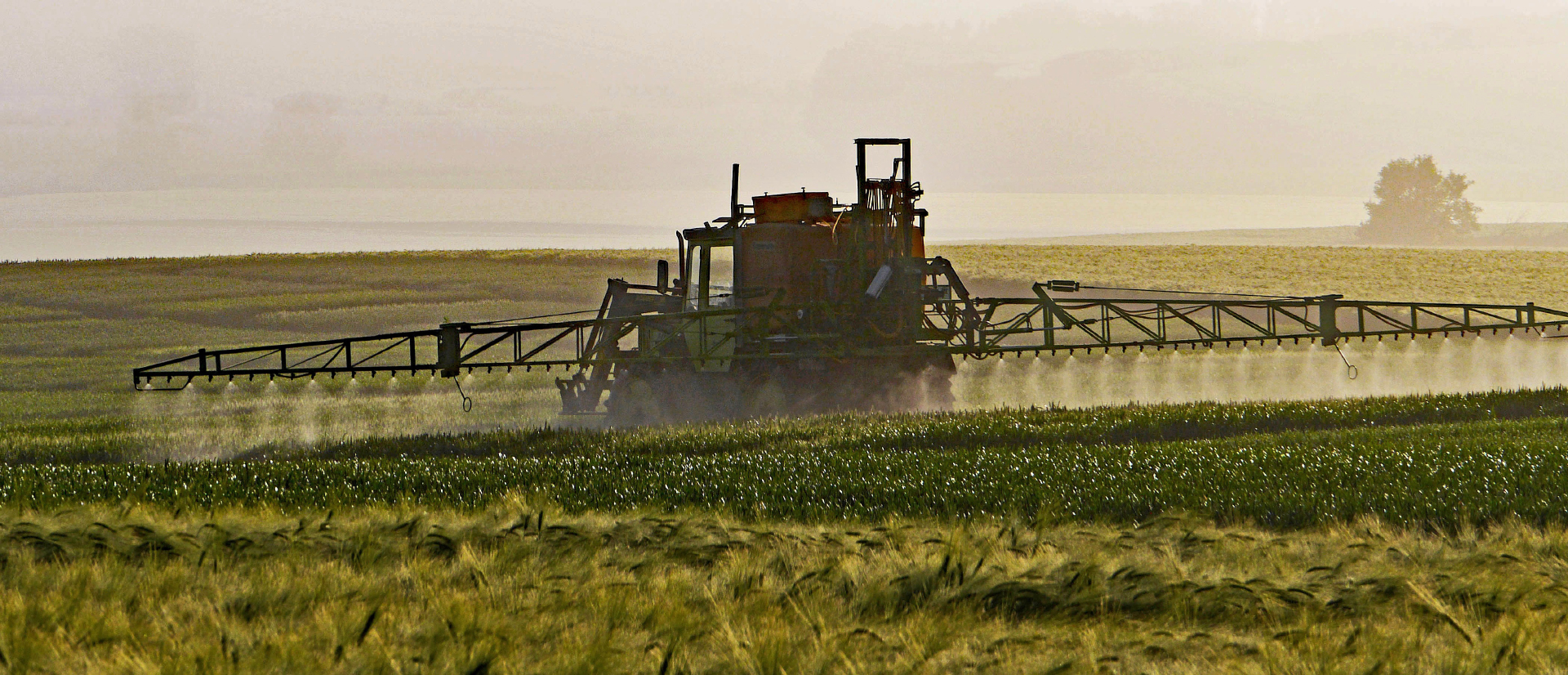 With any fungicide registered for powdery mildew (PM) your most effective strategy is to spray as frequently as the label will allow, up to once every day when conditions favor the spread of the disease. The primary reasons for this are:
With any fungicide registered for powdery mildew (PM) your most effective strategy is to spray as frequently as the label will allow, up to once every day when conditions favor the spread of the disease. The primary reasons for this are:
- Pesticides are much more effective at preventing PM than curing it.
- Spores can infect host plants very quickly.
- After spores germinate the fungal cell walls gradually thicken as the fungi ages, making these fungi progressively more difficult to kill as time goes on.
PM spores released in the spring require free water to germinate and can infect plant tissues in less than 24 hours. At this stage the spores and new infections are easy to kill. Spores released from these initial infections carry water within the spore and therefore no free water is required for them to germinate and infect plant tissue. These spores can infect hosts in as little as three days. We therefore have at least a 3-day window of maximum vulnerability for controlling PM.
Many pesticides can leave behind a protective residue to prevent powdery mildew infections, but we commonly see powdery mildews develop resistance to most all of these chemicals within just a few years after their release, so if we rely upon them with even moderate frequencies, they will become totally ineffective in almost no time—many already have. Also, plants grow. Hot house cucumbers for instance can grow three feet or more in a week. New growth is not protected.
Field trials conducted with fungicides to control PM consistently show better results for products when applied at 7-day intervals rather than 10 to 14-day intervals when disease pressure is high. Unfortunately, we can’t spray most fungicides that frequently because we need to prevent disease resistance, they can be expensive, and some can damage plants if used with such frequency.
Sulfur is an exception. Sulfur is inexpensive and it can be applied at a low rate every day without problems with most crops. We used sulfur vaporizers in greenhouses at UC Davis that turned on at midnight on a nightly basis for the 27 years I was there. As long as those sulfur vaporizers were properly maintained we never saw one incidence of powdery mildew or rust on any plant, and we grew hundreds of different species of plants. With nightly applications we had 100 percent control of PM for 27 straight years.
Sulfur does not cure existing powdery mildew, but if applied frequently enough it works great. So, why not just use sulfur? For one thing, you are not going to be allowed to use sulfur vaporizers. When I was running greenhouse vegetable operations in the private sector, those sulfur vaporizers were forbidden and they still are for home or commercial use. I never got a good explanation for this, but it is what it is, and if you question authority too much you get crushed. You can apply sulfur as a dust or spray, though. One problem with that is it will prevent you from using most horticultural oils, as the combination of sulfur and oil burns leaves. Circadian Sunrise is an exception. Its basic nature neutralizes the acidic nature of sulfur, so it can be used between sulfur applications.
Another problem with sulfur is related to worker safety. In California you’re going to have to wait at least 24 hours before your workers can reenter a treated site. Sulfur may also cause harm to lungs. A recent study conducted by the University of California at Berkley has linked sulfur to damaging the lungs of children living near fields frequently treated with sulfur. This study is already making its way into the hands of lawyers. Though sulfur works great, we should probably be looking for alternatives to sulfur, not promoting further use.
What about bicarbonates, horticultural oils and essential oils? At the rates at which these products are effective, you risk phytotoxicity when applied more frequently than every 5 to 7 days, and these products are generally not labelled for applications any more frequent than that.
That leaves us with All Phase. All Phase can be applied daily at a safe low rate, and is affordable (as low as $0.16/per gallon of ready to use solution if purchased in sufficient volume). In greenhouses, growth chambers, and grow rooms, All Phase can even be applied through a fogger on a timer, so that All Phase can be applied at midnight, and in the morning after any residual fog has been vented (most fan ventilated greenhouses provide 1 air exchange per minute) workers can safely enter. In all likelihood, every day applications are excessive, and applications made once every three days to cover that window of maximum vulnerability should provide maximum PM control.
Will frequent applications of All Phase cause disease resistance? We can’t really say for sure, but potassium sorbate is not like other synthetic pesticides. It was not invented by a chemist in a lab. Potassium sorbate evolved naturally over millions of years to prevent fruit from rotting on certain plants. Also, in the fifty plus years that it has been used as a food preservative, it is still effectively preserving foods, and has the status of being the most widely used food preservative in the world.




